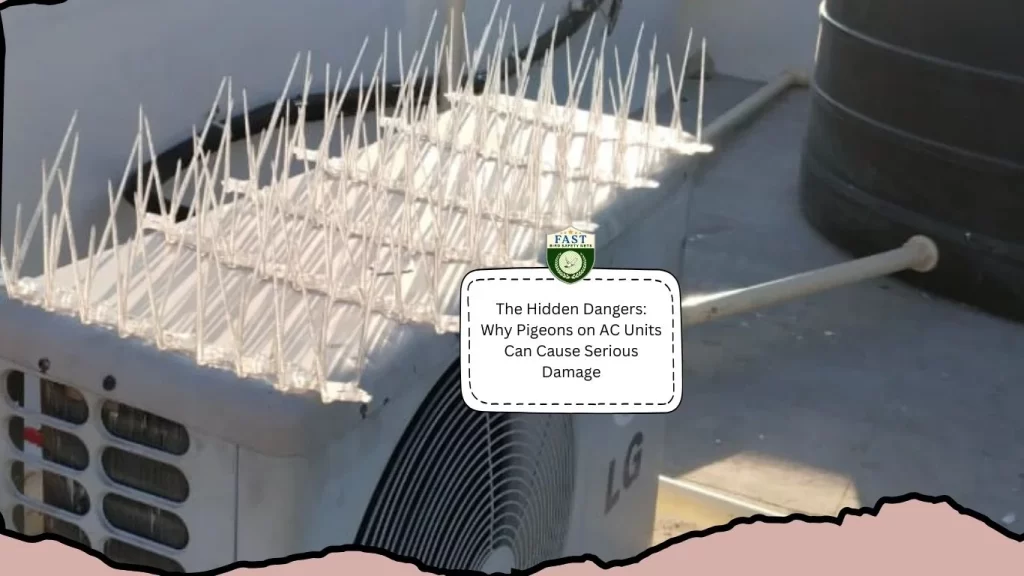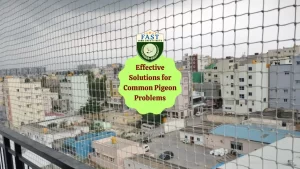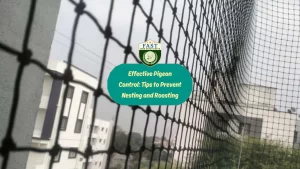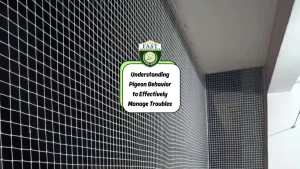Pigeons nesting on AC units might seem harmless, but their presence can lead to significant damage and health risks. In this article, we uncover the hidden dangers associated with pigeons on AC units and explore the potential consequences for homeowners and businesses.
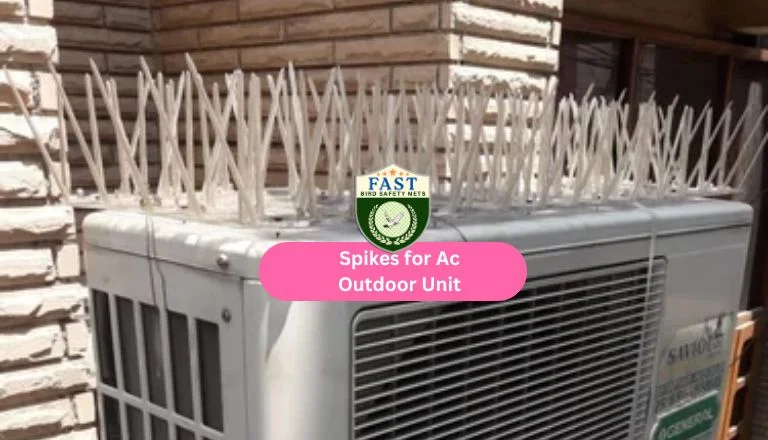
1. Health Hazards: Risks of Pigeon Droppings
Pigeon droppings on AC units pose a serious health risk, as they can contain harmful pathogens, bacteria, and fungi. Exposure to these contaminants can lead to respiratory issues, infections, and allergic reactions, particularly for individuals with compromised immune systems. Understanding the health hazards associated with pigeon droppings is essential for prioritizing the removal of these pests from AC units.
2. Structural Damage: Effects on AC Performance
Pigeons nesting on AC units can cause structural damage that compromises the system’s performance. Their droppings contain uric acid, which is highly corrosive and can corrode metal components of the unit over time. Additionally, nesting materials such as twigs and feathers can clog vents and drainage systems, leading to reduced airflow and efficiency. As a result, AC units may experience breakdowns, increased energy consumption, and costly repairs.
3. Fire Hazard: Risk of Electrical Damage
Pigeons nesting on AC units pose a fire hazard due to their propensity to peck at electrical wires and components. Damaged wires can short-circuit, spark, or overheat, potentially igniting nearby combustible materials. The combination of nesting materials, electrical components, and heat from the AC unit creates a dangerous environment that increases the risk of fire. Recognizing this risk underscores the importance of promptly addressing pigeon infestations on AC units.
4. Air Quality Issues: Impact on Indoor Environment
Pigeon infestations on AC units can compromise indoor air quality, posing risks to occupants’ health and comfort. As the unit operates, airborne contaminants from pigeon droppings and debris may be circulated throughout the indoor space, leading to unpleasant odors and respiratory irritations. Moreover, if the AC filters become contaminated, they may fail to effectively trap airborne pollutants, further exacerbating indoor air quality issues. Addressing pigeon infestations is essential for maintaining a healthy and comfortable indoor environment.
5. Aesthetic Concerns: Detracting from Property Appearance
Beyond the functional implications, pigeons nesting on AC units can detract from the appearance of residential and commercial properties. Accumulations of droppings, feathers, and nesting materials create unsightly messes that diminish curb appeal and project an image of neglect. Additionally, the presence of pigeons and their droppings can deter potential customers, tenants, or visitors, impacting property value and reputation. Addressing pigeon infestations promptly is crucial for preserving the aesthetics and integrity of the property.
Conclusion:
In conclusion, pigeons nesting on AC units pose hidden dangers that can have serious consequences for homeowners and businesses. From health hazards and structural damage to fire hazards and air quality issues, the risks associated with pigeon infestations extend far beyond mere nuisance. Recognizing these dangers underscores the importance of implementing effective pigeon control measures to protect AC units and ensure the safety, health, and comfort of occupants. Implementing effective pigeon control measures, such as pigeon spikes, is essential to protect AC units and ensure the safety, health, and comfort of occupants.

